
Poltava: The Gem of Central Ukraine
Poltava, nestled in the heart of Ukraine, is a city bursting with history and culture. Known for its pivotal role in the Battle of Poltava in 1709, this city offers a unique blend of past and present. Wander through the expansive parks, visit the impressive museums, and immerse yourself in the tales of yesteryears that have shaped this charming Ukrainian city. The Poltava Battle History Museum and the Monument of Glory are must-see attractions for history buffs. The city also boasts beautiful religious sites like the Assumption Cathedral and the Savior Church, showcasing stunning Ukrainian Baroque architecture. For art lovers, the Poltava Regional Museum is a treasure trove of Ukrainian folk art and artifacts. Beyond its historical significance, Poltava is also home to a vibrant culinary scene. Sample traditional Ukrainian dishes at local restaurants, where you can savor hearty borscht, varenyky (dumplings), and the famous Poltava galushki. The city's bustling markets and cafes offer a taste of local life, making it a delightful destination for foodies. Poltava's serene riverside and green spaces, such as the picturesque Victory Park, provide a perfect escape from the hustle and bustle. Whether you're strolling along the Vorskla River or relaxing in one of the city's many parks, you'll find plenty of spots to unwind and enjoy the natural beauty of this central Ukrainian gem.
Local tips in Poltava
- Visit the Poltava Battle History Museum early in the day to avoid crowds and fully immerse yourself in the exhibits.
- Try the local specialty, Poltava galushki, at a traditional restaurant for an authentic Ukrainian culinary experience.
- Take a leisurely walk along the Vorskla River in the evening to enjoy the serene atmosphere and picturesque views.
- Use the local marshrutka minibuses for an affordable and efficient way to get around the city.
- Don't forget to visit the Poltava Regional Museum for a comprehensive look at the city's rich cultural heritage.
Poltava: The Gem of Central Ukraine
Poltava, nestled in the heart of Ukraine, is a city bursting with history and culture. Known for its pivotal role in the Battle of Poltava in 1709, this city offers a unique blend of past and present. Wander through the expansive parks, visit the impressive museums, and immerse yourself in the tales of yesteryears that have shaped this charming Ukrainian city. The Poltava Battle History Museum and the Monument of Glory are must-see attractions for history buffs. The city also boasts beautiful religious sites like the Assumption Cathedral and the Savior Church, showcasing stunning Ukrainian Baroque architecture. For art lovers, the Poltava Regional Museum is a treasure trove of Ukrainian folk art and artifacts. Beyond its historical significance, Poltava is also home to a vibrant culinary scene. Sample traditional Ukrainian dishes at local restaurants, where you can savor hearty borscht, varenyky (dumplings), and the famous Poltava galushki. The city's bustling markets and cafes offer a taste of local life, making it a delightful destination for foodies. Poltava's serene riverside and green spaces, such as the picturesque Victory Park, provide a perfect escape from the hustle and bustle. Whether you're strolling along the Vorskla River or relaxing in one of the city's many parks, you'll find plenty of spots to unwind and enjoy the natural beauty of this central Ukrainian gem.
When is the best time to go to Poltava?
Iconic landmarks you can’t miss
Corpus Park
Explore the lush landscapes and vibrant flora of Corpus Park in Poltava, a serene botanical garden perfect for leisurely strolls and relaxation.
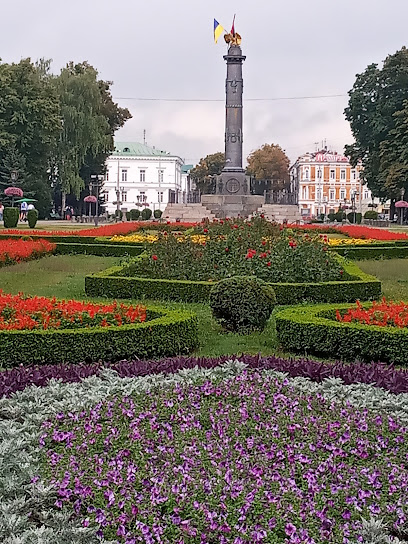
Rotunda of Peoples Friendship
Experience the beauty and cultural significance of the Rotunda of Peoples Friendship, a stunning monument in Poltava that symbolizes unity and peace.
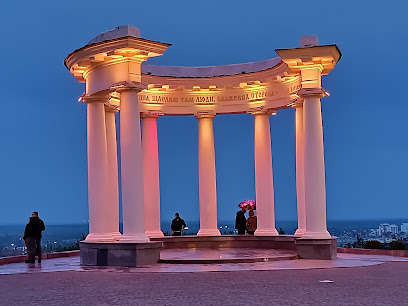
Museum of the History of the Poltava Battle
Discover the legacy of the Poltava Battle at this captivating museum, where history and culture intertwine in the heart of Ukraine.
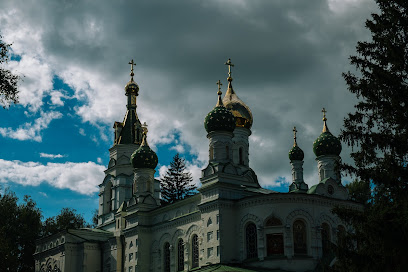
Poltava Local Lore Museum
Explore the captivating history and culture of Poltava at the Local Lore Museum, a must-visit for tourists seeking to understand the region's heritage.
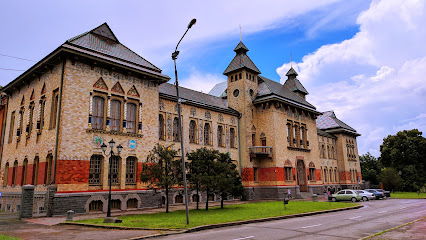
Poltava Museum and long-range strategic aviation
Discover the captivating history of aviation and military strategy at the Poltava Museum and Long-Range Strategic Aviation, a unique cultural gem in Ukraine.
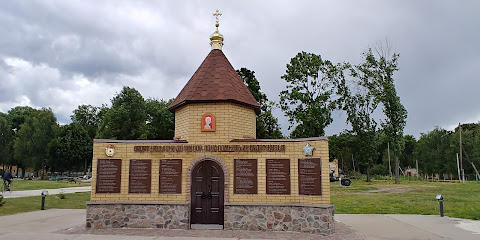
Chestnut Alley
Discover the natural beauty of Chestnut Alley, a serene park in Poltava, perfect for leisurely strolls and relaxation amidst stunning chestnut trees.
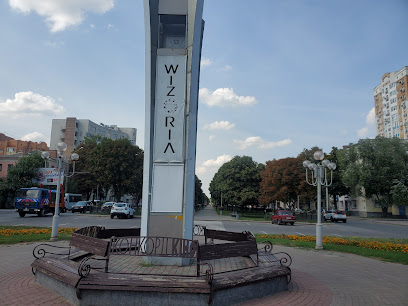
Museum-estate of Ivan Kotlyarevskyi
Discover the literary legacy of Ivan Kotlyarevskyi at his museum-estate in Poltava, a cultural gem showcasing Ukraine's rich heritage.
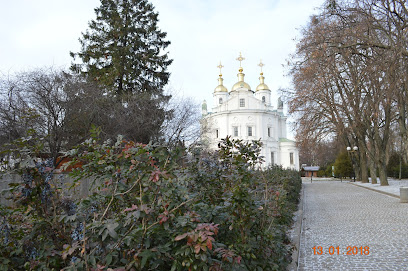
Monument to Ivan Kotliarevskyi
Discover the Monument to Ivan Kotliarevskyi in Poltava, a historical landmark celebrating Ukraine's literary heritage and national identity.
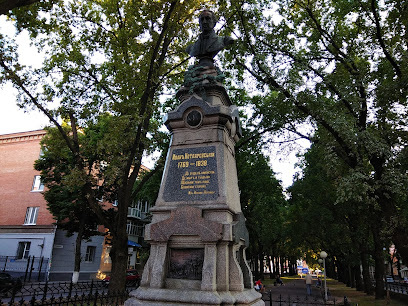
Memorial Sign to the Poltava Galushka
Explore Poltava's culinary heritage at the Memorial Sign to the Poltava Galushka, a charming tribute in the heart of the city.
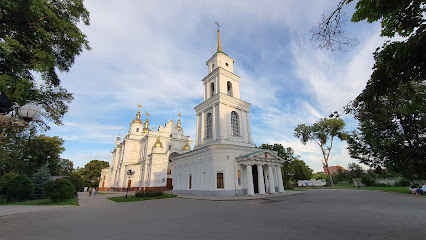
Assumption Cathedral
Explore the Assumption Cathedral, a stunning architectural masterpiece in Poltava, rich in history and spiritual significance.
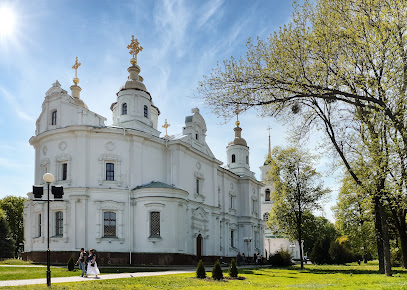
Ivan Mazepa Monument
Explore the Ivan Mazepa Monument in Poltava, a tribute to Ukrainian history and culture, set in the picturesque Sobornyi Square.
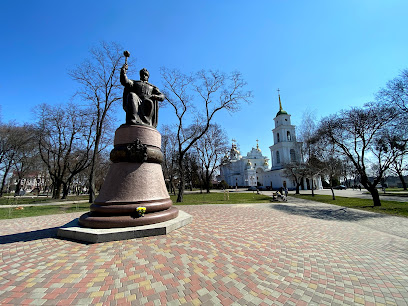
Church of the Savior
Discover the breathtaking Church of the Savior in Poltava, a stunning Russian Orthodox church that embodies history, art, and spiritual tranquility.
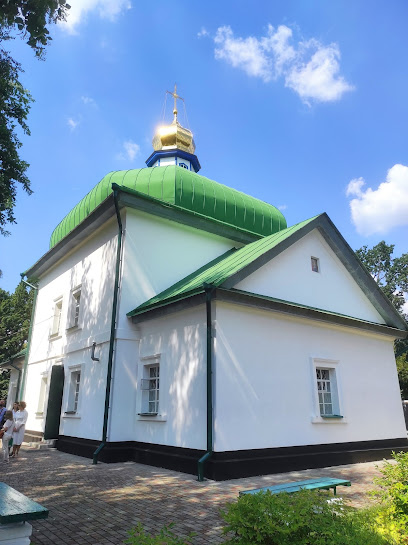
Monument to Taras Shevchenko
Explore the Monument to Taras Shevchenko, a historic landmark in Poltava celebrating Ukraine's national poet and cultural heritage amid beautiful gardens.
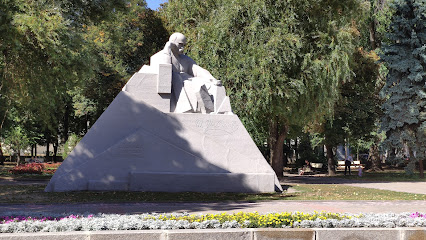
Memorial Soldier of Glory
Discover the Memorial Soldier of Glory in Poltava, a serene park honoring valor with stunning monuments and rich history.
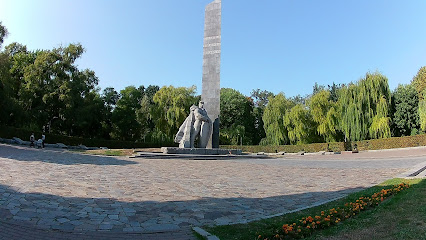
Eagle monument
Discover the Eagle Monument in Poltava, a stunning historical landmark symbolizing the city's rich heritage and cultural significance.
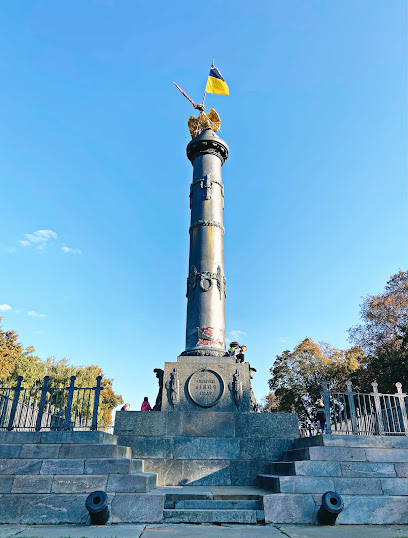
Unmissable attractions to see
Rotunda of Peoples Friendship
Experience the Rotunda of Peoples Friendship in Poltava, a stunning monument celebrating unity and cultural harmony among nations.
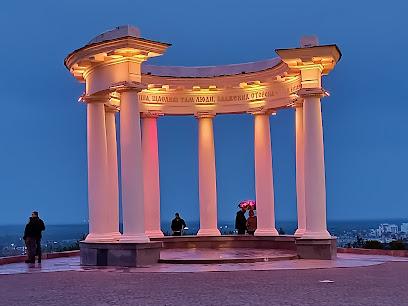
Sonyachnyy Park
Experience the tranquility of Sonyachnyy Park, a lush urban oasis in Poltava, ideal for relaxation, family fun, and cultural events.
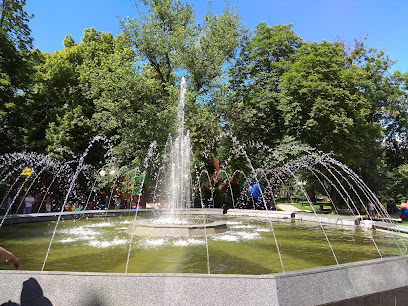
Park Victory
Discover the lush beauty and peaceful ambiance of Park Victory, a premier park and tourist attraction in Poltava, Ukraine.
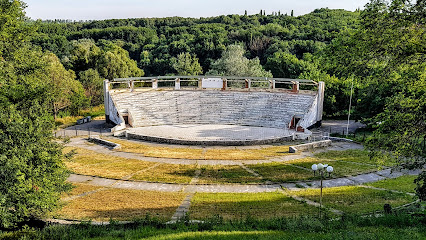
Museum of the History of the Poltava Battle
Discover the captivating history of the Poltava Battle at this fascinating museum, showcasing artifacts and stories from a pivotal conflict in European history.
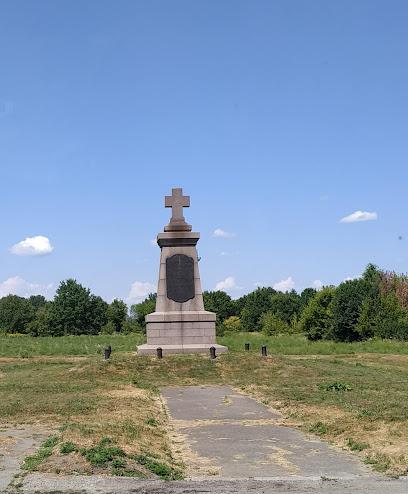
Museum of the History of the Poltava Battle
Explore the Museum of the History of the Poltava Battle to discover the rich heritage of Ukraine's historical military events and their impact on Europe.
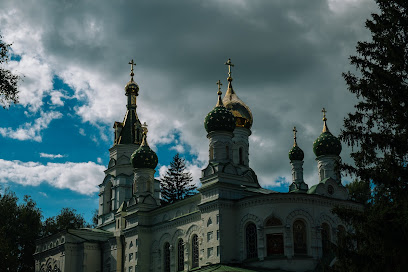
Poltava City Park
Explore the lush greenery, serene ponds, and vibrant atmosphere of Poltava City Park, a must-visit destination for relaxation and recreation in Poltava.
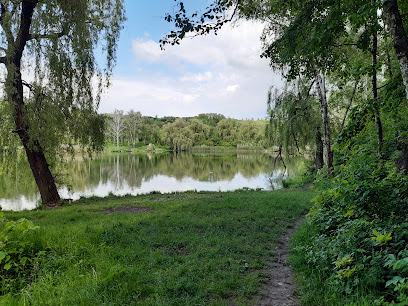
Poltava Local Lore Museum
Uncover the depths of Poltava's history at the Local Lore Museum, a vibrant destination for culture and heritage enthusiasts.
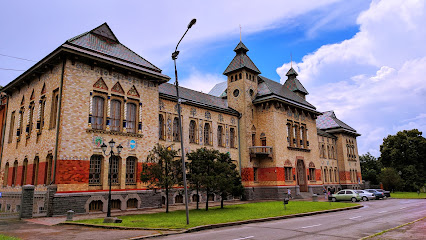
Poltava Local Lore Museum
Discover the captivating history and culture of Poltava at the Local Lore Museum, a must-visit for history enthusiasts and curious travelers.
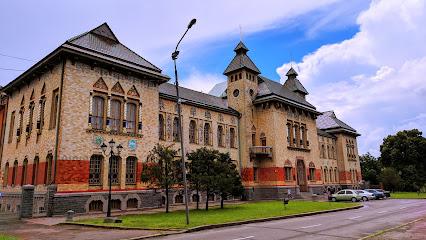
Poltava Museum and long-range strategic aviation
Explore the fascinating world of aviation history at the Poltava Museum of Long-Range Strategic Aviation, a must-see tourist attraction in Ukraine.
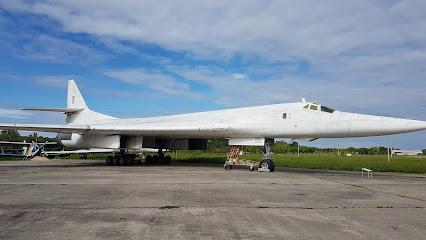
Poltava Museum and long-range strategic aviation
Discover the Poltava Museum, where history meets aviation in an engaging open-air setting, perfect for culture and history enthusiasts visiting Ukraine.
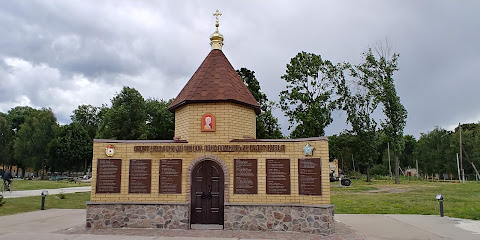
Teatralna square
Explore Teatralna Square in Poltava: A vibrant fairground rich in culture, history, and local life.
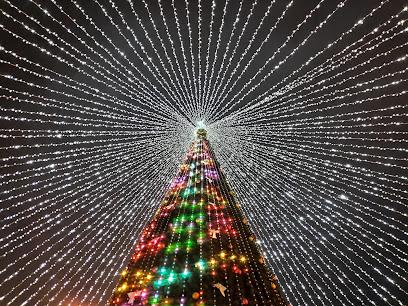
Chestnut Alley
Discover the tranquil beauty of Chestnut Alley in Poltava, a lush park perfect for leisurely strolls, family outings, and cultural events.
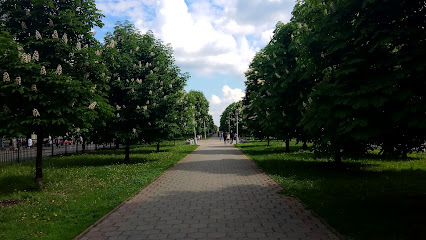
Park of Afghan soldiers
Discover the tranquility and historical significance of the Park of Afghan Soldiers in Poltava, where nature meets remembrance in a picturesque setting.
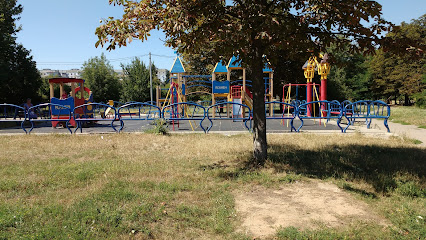
Holy Cross Convent
Discover the tranquility and architectural beauty of the Holy Cross Convent in Poltava, a must-visit spiritual sanctuary and tourist attraction.
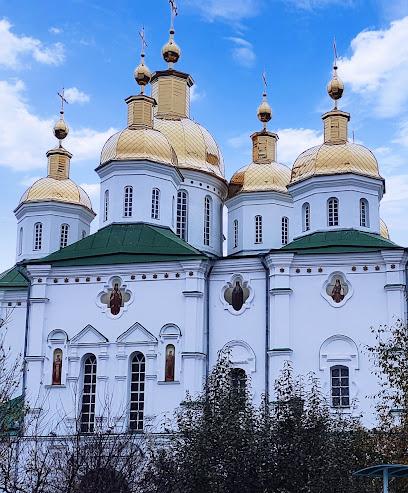
Museum-estate of Ivan Kotlyarevskyi
Immerse yourself in the life of Ivan Kotlyarevskyi at this captivating museum estate in Poltava, a must-visit for culture and literature enthusiasts.
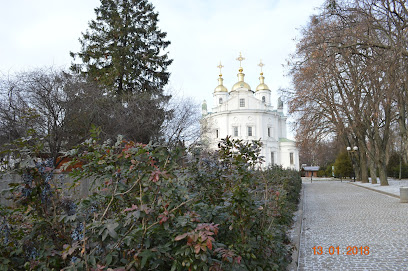
Essential places to dine
Halushka
Discover authentic Ukrainian flavors at Halushka in Poltava - where tradition meets taste in every delightful dish.
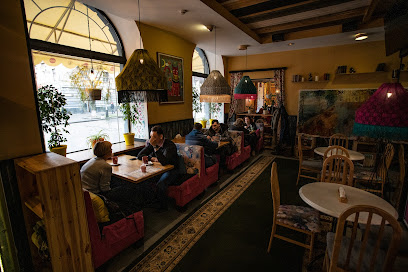
Trattoria Viva Olive
Experience the best of local and Italian cuisine at Trattoria Viva Olive in Poltava – where every meal feels like home.
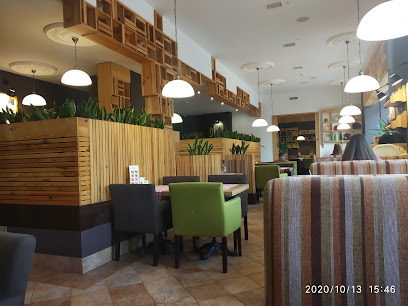
Komora-the First Dumpling Manufactory
Experience authentic Ukrainian cuisine at Komora - The First Dumpling Manufactory in Poltava, where tradition meets taste in every bite.
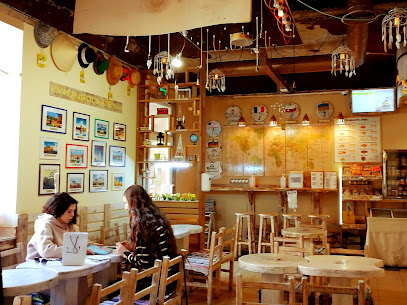
Той самий Баранчик Полтава
Experience authentic Georgian flavors at Tой самий Баранчик in Poltava - a culinary journey awaits you!
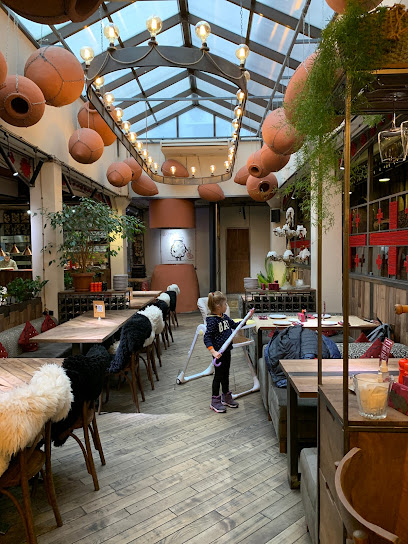
Beer House
Discover the vibrant atmosphere of Beer House in Poltava – a brewpub serving delicious craft beers and traditional Ukrainian cuisine.
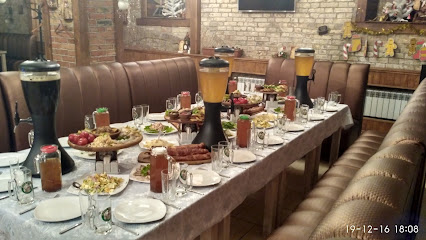
KiotoRich: Доставка Суші в Полтаві
Savor authentic sushi and diverse Japanese cuisine at KiotoRich in Poltava – perfect for dining in or enjoying convenient meal delivery.
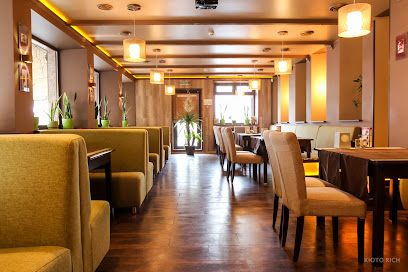
Kozachka
Experience the heart of Ukrainian cuisine at Kozachka in Poltava - where tradition meets flavor.
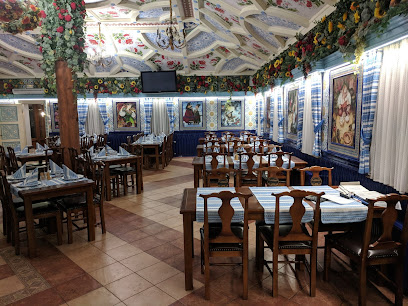
Lileya
Experience exquisite Ukrainian cuisine at Lileya in Poltava - where tradition meets innovation in every dish.
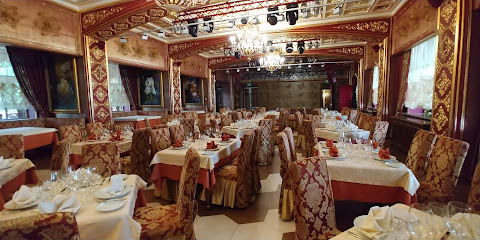
Dykanʹka
Experience authentic Ukrainian flavors at Dykanʹka – where every dish tells a story of tradition and taste.
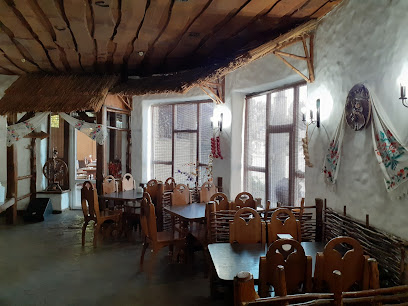
Terrasa - Terrytoryya Myasa
Savor exquisite meat dishes and local flavors at Terrasa - Terrytoryya Myasa, Poltava's premier destination for culinary delights.
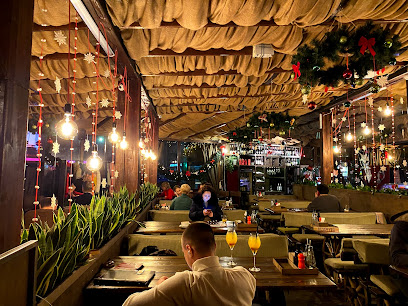
Meat Wood
Experience authentic American flavors at Meat Wood in Poltava – where quality meets comfort in every bite.
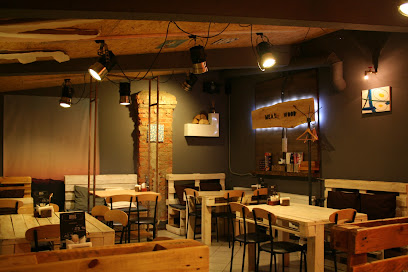
Muza-bar
Discover Muza-bar: A premier dining and nightlife destination in Poltava offering great food, live music, and an electrifying atmosphere.
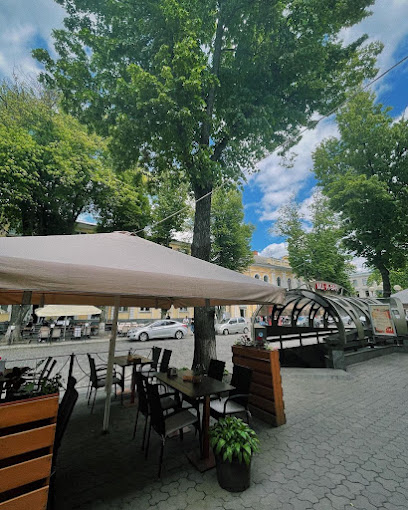
Міське кафе Чічіков
Experience the rich flavors of Ukrainian cuisine at Chichikov City Café in Poltava - where tradition meets taste in every dish.
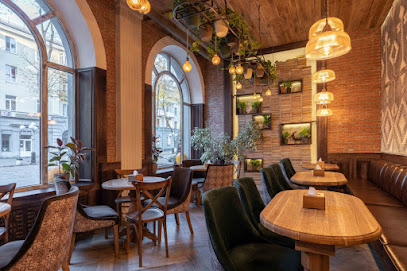
Krynytsya
Discover Krynytsya in Poltava: A delightful blend of traditional Ukrainian flavors and modern dining experiences.
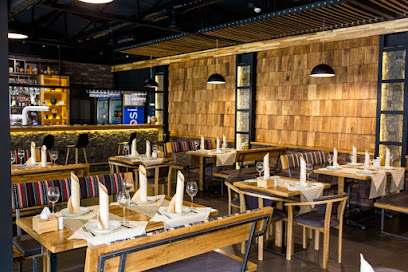
Kipyatok
Experience tranquility at Kipyatok, Poltava's premier hookah bar and Chinese tea house, blending tradition with relaxation for every visitor.
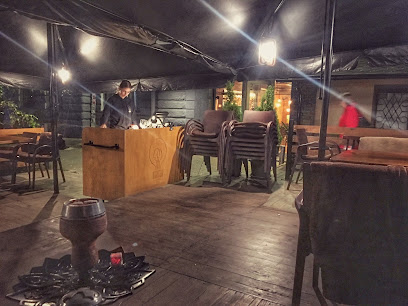
Markets, malls and hidden boutiques
Kyiv Shopping Centre
Explore the Kyiv Shopping Centre in Poltava – a vibrant shopping mall that blends fashion, food, and fun, offering a unique Ukrainian shopping experience.
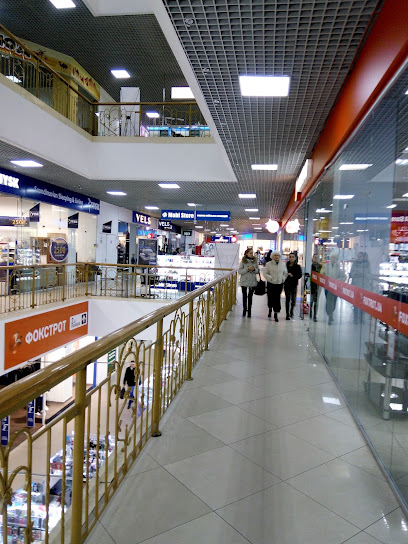
Mall Equator
Explore Mall Equator in Poltava: your ultimate shopping and entertainment destination, featuring a diverse selection of shops, dining experiences, and fun for everyone.
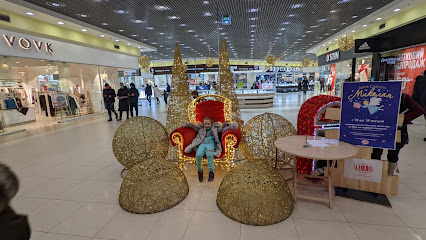
Zlato Misto
Discover Zlato Misto: Poltava's vibrant shopping mall, offering a blend of local charm and international brands in a lively atmosphere.
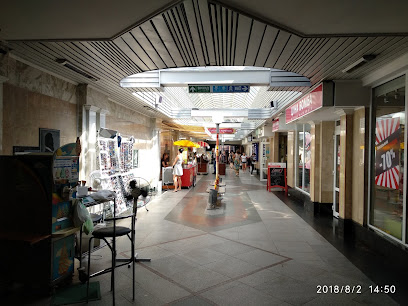
Gangster coffee shop
Discover the vibrant atmosphere of Gangster Coffee Shop in Poltava, where every cup tells a story and every sip is an experience.
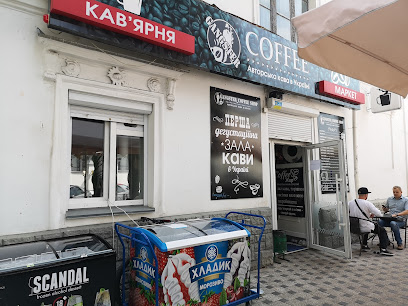
СИЛУЕТ BEAUTY SHOP
Explore СИЛУЕТ BEAUTY SHOP in Poltava for a luxurious range of beauty products and expert services, ensuring a refreshing shopping experience.
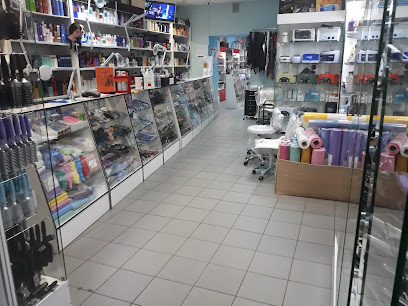
DreamCraft - подарунки
Explore DreamCraft in Poltava for unique souvenirs and gifts that showcase the creative spirit and rich culture of Ukraine.
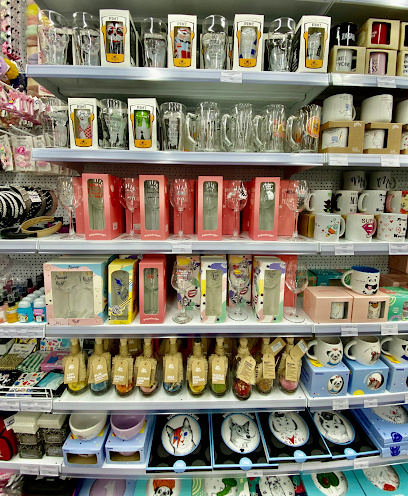
Big Bag
Explore Big Bag, Poltava's vibrant clothing store, offering a unique mix of fashion for every style and budget.
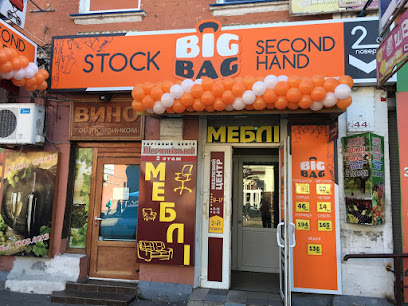
Tardi outlet (Outlet Tarde)
Explore Tardi Outlet in Poltava for unbeatable deals on fashion and accessories, making it a top destination for savvy shoppers and tourists alike.
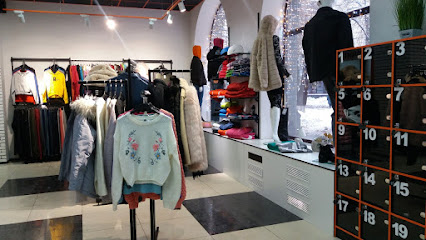
Svit Shkiry Ta Khutra
Discover the latest fashion trends at Svit Shkiry Ta Khutra, Poltava's top clothing store with a unique selection for every style.
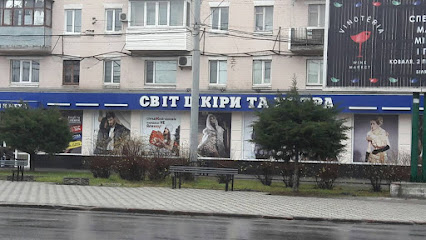
Vovochka
Explore Vovochka in Poltava for unique needlework supplies and handmade treasures, a must-visit for crafting enthusiasts.
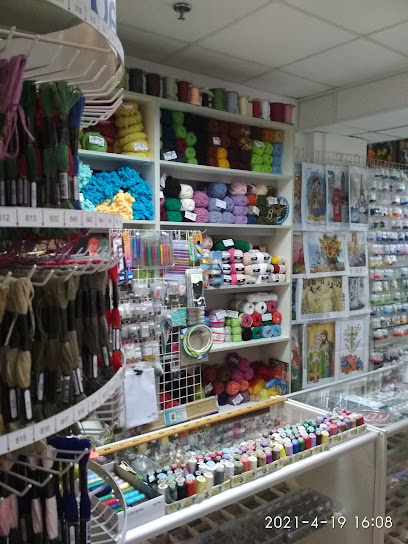
sinsay
Explore Sinsay in Poltava for trendy fashion at affordable prices, where style meets local flair in a vibrant shopping atmosphere.
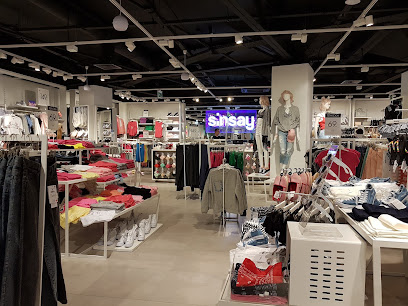
LEKVAR Територія мармеладу
Discover the delightful world of sweets at LEKVAR, Poltava's premier confectionery store offering exquisite marmalades and desserts.
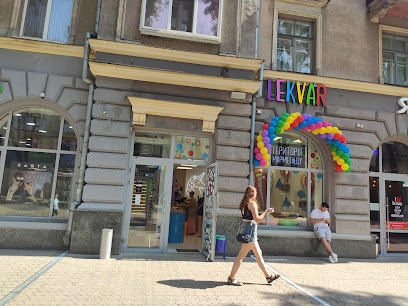
Souvenir shop
Explore Poltava's vibrant culture through unique gifts and exquisite embroidery at this charming souvenir shop.
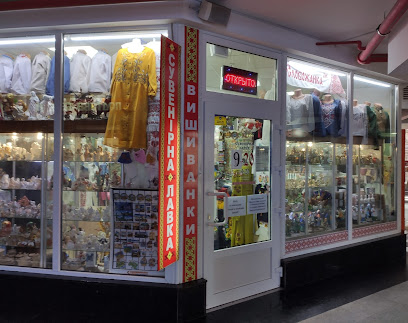
Seks-Shop Polunychka
Discover a diverse selection of adult products in a welcoming atmosphere at Seks-Shop Polunychka, Poltava's leading adult entertainment store.
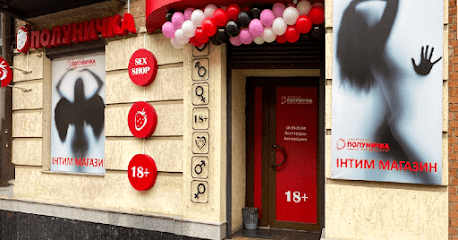
LAUREL Womаns boutique
Explore LAUREL Women's Boutique in Poltava for a stylish selection of women's fashion that combines elegance and comfort, perfect for any occasion.
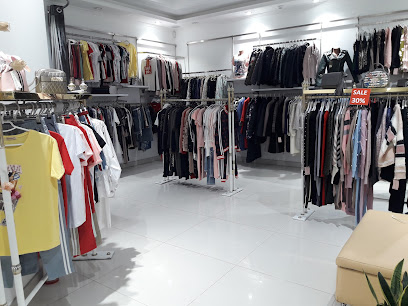
Essential bars & hidden hideouts
Beer House
Discover Poltava's brewing culture at Beer House, where craft beer meets delicious cuisine in a cozy atmosphere.
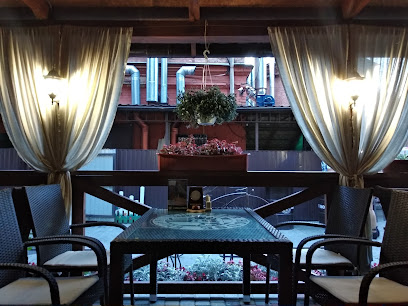
Valber
Experience the vibrant atmosphere of Valber, Poltava's favorite Irish pub, with hearty dishes and an extensive selection of beers.
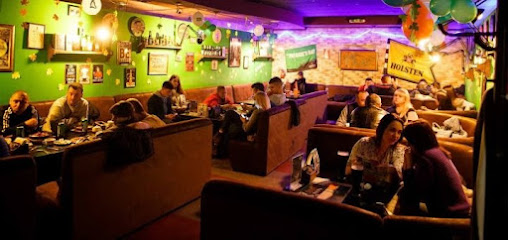
V M'yaso Poltava
Discover the heart of Ukrainian cuisine at V M'yaso Poltava – a pub where tradition meets taste in a lively atmosphere.
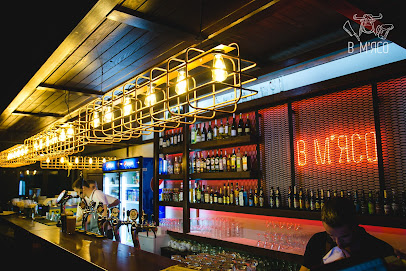
Muza-bar
Experience the culinary and nightlife vibrance at Muza-bar in Poltava, where delightful meals and lively entertainment await.
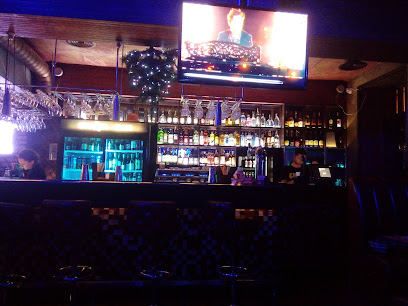
Panorama
Discover the craft beer culture at Panorama Brewpub in Poltava, where tradition meets innovation in every brew and dish.
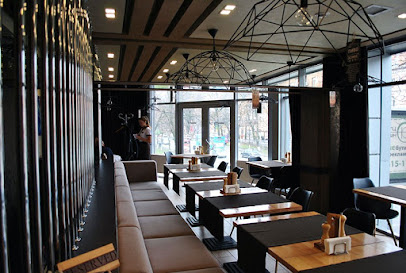
JJ&K - Кальян Бар
Discover the ultimate relaxation spot at JJ&K Hookah Bar in Poltava, where modern ambiance meets an extensive hookah menu.
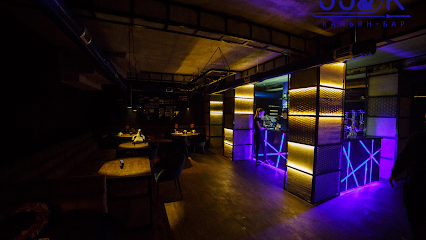
Concrete Bar
Experience authentic Italian cuisine in a modern setting at Concrete Bar, Poltava's premier dining destination.
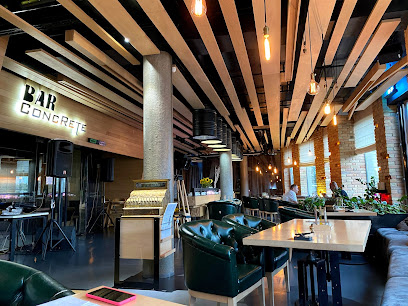
Buns Brew Bar
Experience the cozy charm of Buns Brew Bar in Poltava, where exceptional coffee meets a welcoming atmosphere.
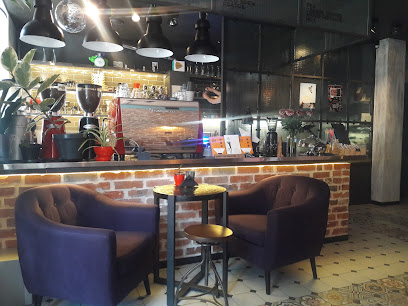
Ц бар
Discover the vibrant nightlife at Ц бар, Poltava's premier cocktail destination, offering expertly crafted drinks in a chic atmosphere.
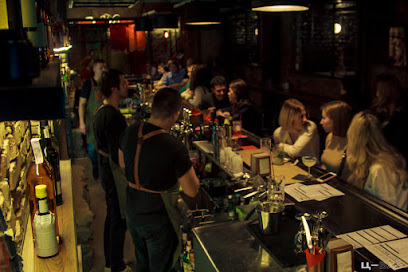
Pushka Lounge Bar
Discover the lively Pushka Lounge Bar in Poltava, where vibrant ambiance meets exceptional cocktails and local hospitality.
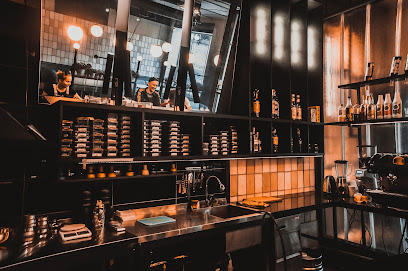
КРИШКА PUB
Discover the lively ambiance and diverse drink offerings at КРИШКА PUB in Poltava, a must-visit for nightlife enthusiasts.
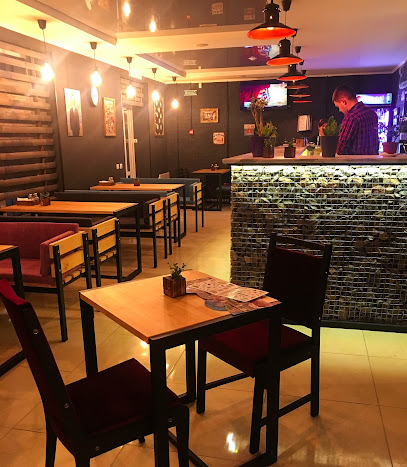
P'yana Vyshnya
Discover the charm of P'yana Vyshnya, a vibrant bar in Poltava offering a unique blend of local drinks and warm hospitality for an unforgettable night out.
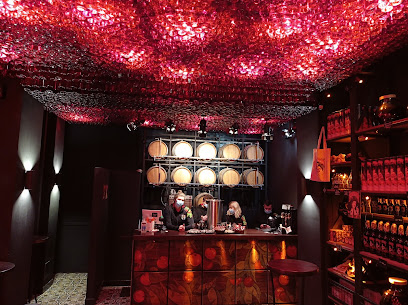
CityPlay
Experience the vibrant nightlife at CityPlay, Poltava's premier bar offering great drinks and an unforgettable atmosphere.
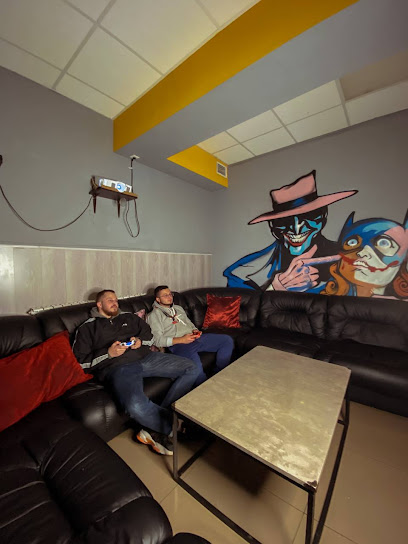
Хмільний
Experience the authentic charm of Хмільний pub in Poltava, where tradition meets modernity in a vibrant atmosphere.
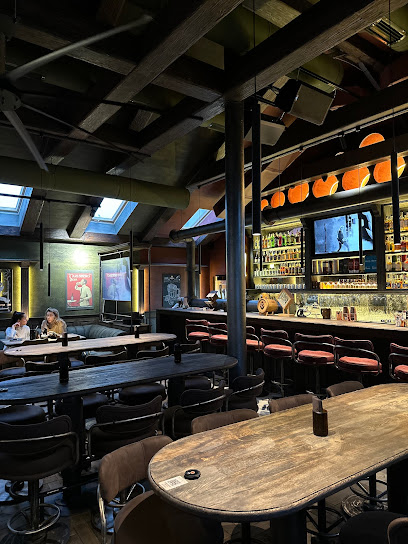
Local Phrases
-
- HelloПривіт
[Pryvit] - GoodbyeДо побачення
[Do pobachennya] - YesТак
[Tak] - NoНі
[Ni] - Please/You're welcomeБудь ласка
[Bud' laska] - Thank youДякую
[Dyakuyu] - Excuse me/SorryВибачте
[Vybachte] - How are you?Як справи?
[Yak spravy?] - Fine. And you?Добре. А ви?
[Dobre. A vy?] - Do you speak English?Ви говорите англійською?
[Vy hovoryte anhliysʹkoyu?] - I don't understandЯ не розумію
[Ya ne rozumiyu]
- HelloПривіт
-
- I'd like to see the menu, pleaseЯ б хотів подивитися меню, будь ласка
[Ya b khotiv podyvytysya meny, bud' laska] - I don't eat meatЯ не їм м'ясо
[Ya ne yim m'yaso] - Cheers!Ура!
[Ura!] - I would like to pay, pleaseЯ б хотів розрахуватися, будь ласка
[Ya b khotiv rozrakhuvatysya, bud' laska]
- I'd like to see the menu, pleaseЯ б хотів подивитися меню, будь ласка
-
- Help!Допоможіть!
[Dopomozhitʹ!] - Go away!Піди геть!
[Pidi hetʹ!] - Call the Police!Покличте поліцію!
[Poklychte politsiyu!] - Call a doctor!Викличте лікаря!
[Vyklychte likarya!] - I'm lostЯ загубився
[Ya zahubivsya] - I'm illЯ хворий
[Ya khvoryy]
- Help!Допоможіть!
-
- I'd like to buy...Я б хотів купити...
[Ya b khotiv kupity...] - I'm just lookingЯ просто дивлюсь
[Ya prosto dyvlyusʹ] - How much is it?Скільки це коштує?
[Skilʹky tse koshtuye?] - That's too expensiveЦе занадто дорого
[Tse zanadto doroho] - Can you lower the price?Чи можете ви знизити ціну?
[Chy mozhete vy znyzyty tsinu?]
- I'd like to buy...Я б хотів купити...
-
- What time is it?Котра година?
[Kotra hodyna?] - It's one o'clockОдна година
[Odna hodyna] - Half past (10)Пів на одинадцяту
[Piv na odynadtsyatu] - MorningРанок
[Ranok] - AfternoonДень
[Den'] - EveningВечір
[Vechir] - YesterdayВчора
[Vchora] - TodayСьогодні
[S'ohodni] - TomorrowЗавтра
[Zavtra] - 1один
[odyn] - 2два
[dva] - 3три
[try] - 4чотири
[chotyry] - 5п'ять
[p'yat'] - 6шість
[shist'] - 7сім
[sim] - 8вісім
[visim] - 9дев'ять
[dev'yat'] - 10десять
[desyat']
- What time is it?Котра година?
-
- Where's a/the...?Де є/знаходиться...?
[De ye/znakhodytsya...?] - What's the address?Яка адреса?
[Yaka adresa?] - Can you show me (on the map)?Чи можете ви мені показати (на карті)?
[Chy mozhete vy meni pokazaty (na karti)?] - When's the next (bus)?Коли наступний (автобус)?
[Koly nastupnyy (avtobus)?] - A ticket (to ....)Квиток (до ....)
[Kvytok (do ....)]
- Where's a/the...?Де є/знаходиться...?
History of Poltava
-
The Battle of Poltava, fought on June 28, 1709, was a pivotal moment in European history. This decisive victory by Tsar Peter I of Russia over the Swedish forces led by Charles XII marked the beginning of the decline of the Swedish Empire and the rise of Russia as a major European power. The battle took place on the outskirts of Poltava and is commemorated by several monuments and museums in the city.
-
In 1802, Poltava became the administrative center of the newly established Poltava Governorate (Gubernia) in the Russian Empire. This period saw significant urban development and cultural flourishing, including the construction of iconic buildings like the Poltava Governor's House and the establishment of educational institutions. Poltava became a hub of Ukrainian culture and education, attracting intellectuals and artists.
-
In 1926, a monument dedicated to the revered Ukrainian poet and national hero Taras Shevchenko was unveiled in Poltava. The monument symbolizes the city's deep connection to Ukrainian national identity and culture. Shevchenko's legacy continues to be honored in Poltava through various cultural events and institutions.
-
During World War II, Poltava was occupied by Nazi Germany from 1941 to 1943. The city suffered extensive damage, and many of its inhabitants were subjected to harsh conditions. The Battle of Poltava in 1943 was part of the larger Eastern Front conflict, and the city was eventually liberated by Soviet forces. Post-war reconstruction efforts restored much of Poltava's historical architecture and infrastructure.
-
The Poltava Art Museum, established in 1919, is one of the city's cultural gems. It houses an extensive collection of Ukrainian and international art, including works by renowned artists such as Ilya Repin and Mykola Yaroshenko. The museum reflects Poltava's rich artistic heritage and serves as a center for cultural education and appreciation.
-
Poltava has been a significant center for Ukrainian literature. The city is associated with famous writers like Ivan Kotlyarevsky, whose mock-epic poem 'Eneida' is considered the first literary work written in modern Ukrainian. Kotlyarevsky's house, now a museum, is a popular tourist destination that offers insights into his life and works.
-
Poltava is home to numerous architectural landmarks that reflect its rich history. Notable sites include the Holy Cross Monastery, with its stunning baroque architecture, and the Assumption Cathedral. The Rotunda of People's Friendship, also known as the White Gazebo, offers panoramic views of the city and is a symbol of Poltava's blend of historical and natural beauty.
Poltava Essentials
-
Poltava is conveniently located in central Ukraine. The nearest major airport is Boryspil International Airport in Kyiv, approximately 350 kilometers away. From Kyiv, you can take a direct train to Poltava, which typically takes around 3 to 4 hours. Alternatively, buses and marshrutkas (minibuses) operate regularly from Kyiv and other major cities to Poltava. If you prefer driving, rental cars are available at the airport, and the journey by road takes about 4 hours.
-
Poltava has a well-developed public transportation system including buses, trolleybuses, and marshrutkas. Tickets are inexpensive and can be purchased on board. Taxis are readily available and can be hailed on the street or booked via mobile apps. For those who prefer cycling, bike rentals are available in the city, and Poltava is relatively bike-friendly with several cycling paths.
-
The official currency in Ukraine is the Ukrainian Hryvnia (UAH). Credit cards are widely accepted in hotels, restaurants, and shops in Poltava, but it's advisable to carry some cash for smaller establishments and markets. ATMs are plentiful in the city center and shopping areas, so withdrawing cash is convenient.
-
Poltava is generally a safe city for tourists. However, it is wise to take standard precautions such as avoiding poorly lit areas at night and keeping an eye on your belongings in crowded spaces. The Zhovtnevy District is known to have higher crime rates targeting tourists, so exercise extra caution when visiting this area.
-
In case of emergency, dial 112 for immediate assistance. Poltava has several hospitals and medical facilities, and pharmacies are available throughout the city. It is recommended to have travel insurance that covers medical emergencies. For minor health issues, over-the-counter medications can be purchased at local pharmacies.
-
Fashion: Do dress modestly, especially when visiting religious sites. Avoid overly casual or revealing clothing. Religion: Do respect local customs and traditions. When visiting churches, cover your head and avoid talking loudly. Public Transport: Do be courteous and offer your seat to elderly passengers. Don’t eat or drink on public transport. Greetings: Do greet people with a firm handshake. A slight nod of the head is also a sign of respect. Eating & Drinking: Do try local delicacies and accept food offerings graciously. Don't refuse hospitality as it is considered impolite.
-
To experience Poltava like a local, visit the central market where you can buy fresh produce and traditional Ukrainian goods. Engage with locals, who are often friendly and willing to share stories about the city's history and culture. Don't miss visiting the Poltava Battle Museum and the Round Square, which are significant historical sites. For a unique experience, take a stroll along the Vorskla River, especially during sunset, for a picturesque view.
Trending Landmark in Poltava
-
Corpus Park
-
Rotunda of Peoples Friendship
-
Museum of the History of the Poltava Battle
-
Poltava Local Lore Museum
-
Poltava Museum and long-range strategic aviation
-
Chestnut Alley
-
Museum-estate of Ivan Kotlyarevskyi
-
Monument to Ivan Kotliarevskyi
-
Memorial Sign to the Poltava Galushka
-
Assumption Cathedral
-
Ivan Mazepa Monument
-
Church of the Savior
-
Monument to Taras Shevchenko
-
Memorial Soldier of Glory
-
Eagle monument
Nearby Cities to Poltava
-
Things To Do in Kremenchuk
-
Things To Do in Kharkiv
-
Things To Do in Sumy
-
Things To Do in Cherkasy
-
Things To Do in Zaporozhye
-
Things To Do in Zaporizhzhia
-
Things To Do in Kryvyi Rih
-
Things To Do in Kropyvnytskyi
-
Things To Do in Donetsk
-
Things To Do in Kyiv
-
Things To Do in Chernihiv
-
Things To Do in Mariupol
-
Things To Do in Kherson
-
Things To Do in Vinnytsia
-
Things To Do in Tiraspol













